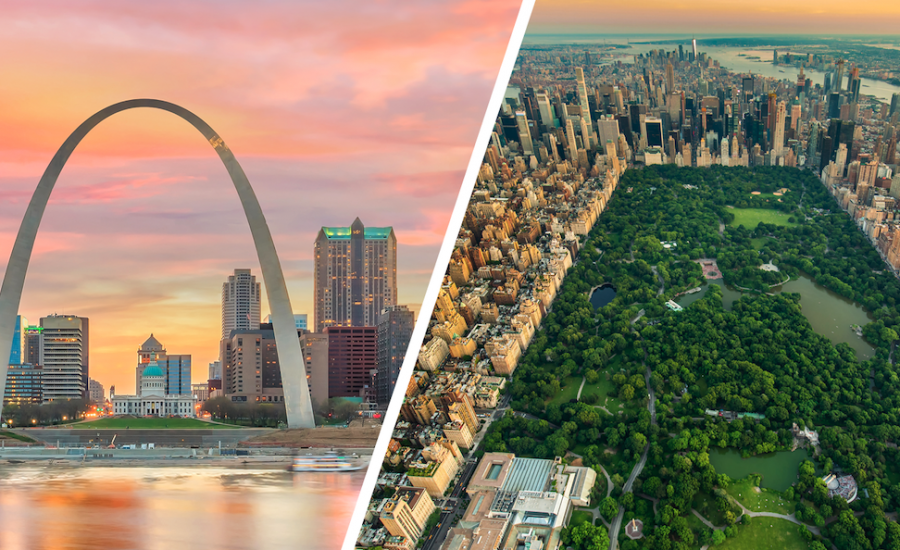Written by Tyler Elder and Taylor Hart-Bowlan
Here at Simplifya, our team of lawyers and regulatory affairs analysts spends a lot of time digging through cannabis regulations, so our clients don’t have to. In 2019 alone we’ve simplified regulatory content for seven states and countless local jurisdictions. But, the year’s not over yet, and neither are we!
We are happy to announce that Missouri and New York are the latest additions to our catalog, bringing the total count of simplified states to 17. New York and Missouri are both medical-only cannabis markets, but that’s about where the similarities end. Continue reading to learn a bit more about the two newest states to get the Simplifya treatment!
Missouri

Missouri is an emerging market in the cannabis industry with big potential … if they play their cards right. Just over a year has passed since voters in the Show-Me State overwhelmingly approved medical cannabis. Since then, regulators have been working hard to make sure they are prepared and on-track to get the market off the ground at the start of 2020.
The Department of Health and Senior Services (DHSS) spent the first few months of the year writing and taking public comment on proposed rules for the industry. Those rules were then introduced as emergency rules in June. They accepted business applications during the first two weeks in August, and have until the end of the year to score applications and award licenses.
Under the current model, there will be 10 testing facilities, 60 cultivation facilities, 86 product manufacturing facilities, and 192 dispensary facilities. DHSS will also issue an indefinite number of transportation licenses to those who can meet the facility and application requirements. With the voter initiative serving as a good foundation, Missouri has created a solid framework for businesses and patients alike.
The Show-Me State has taken cues from some of the most successful medical markets that preceded it to regulate the industry in a smart and comprehensive way. There are no unnecessary restrictions on the products that can be produced and sold. Patients will be limited to no more than four ounces of cannabis, or its equivalent, in any 30-day period. Patients will also be able to order cannabis for delivery. However, like New York, Missouri will not allow patients to consume cannabis unless in a private residence.
The DHSS plans to issue nearly 350 total licenses in the coming months, out of a total 2,163 applications. As soon as licenses are issued, businesses will begin building out, and the first legal cannabis crop will be planted. Patients can expect to walk into a dispensary by late spring to early summer 2020.
New York

New York legalized medical marijuana in 2014 via the Compassionate Care Act, which authorized the Department of Health to set up a program for providing non-combustible cannabis to qualifying patients.
Unlike a few of its medical-marijuana neighbors, New York only issues one “license type” to its operators, dubbed “registered organizations” (ROs). Under a registered organization designation, an operator can have one manufacturing facility (which is also where cultivation occurs) and four dispensaries within the state. Currently, New York has maxed its self-imposed cap of 10 registered ROs, providing a total of 10 authorized manufacturing locations and 40 authorized dispensaries.
These registered organizations face some pretty stringent regulations in terms of what they can produce and sell to patients — and what they can charge for it. Under the state’s regulatory scheme, an RO cannot sell combustibles or flower, and edibles are only allowed with prior approval from the Department of Health. Furthermore, an RO is required to sell certain products, such as capsules and liquid or oral preparations, and the price for every product offered must be pre-approved by the Commission as well. Unsurprisingly, patients are not allowed to consume cannabis on-site.
While there has been movement toward the legalization of adult-use cannabis, the most recent effort — The Marijuana Regulation and Taxation Act — failed to come to a vote by the close of the 2019 New York legislative session. However, the bill’s sponsor, Senator Liz Krueger, has pledged to keep pushing for legalization in 2020.
